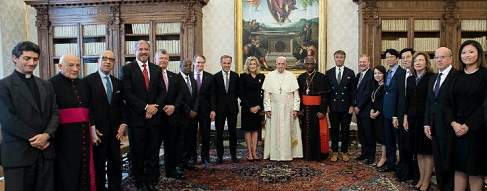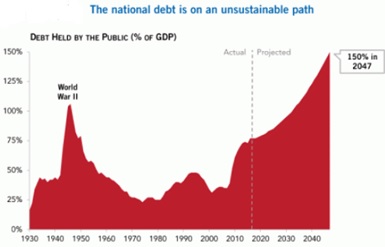Desde hace algún tiempo se viene propagando la idea de un, así llamado, "Capitalismo inclusivo", que promueva los ideales de la justicia social y el bien común. Entre las más prominentes organizaciones impulsoras de esas ideas destaca el Council for Inclusive Capitalism, que se describe a sí mismo como «un movimiento de líderes mundiales del sector público y empresarial que están trabajando para construir un sistema económico más inclusivo, sostenible y confiable que aborde las necesidades de nuestros pueblos y del planeta.» (“a movement of the world’s business and public sector leaders who are working to build a more inclusive, sustainable, and trusted economic system that addresses the needs of our people and the planet.”). 
Notablemente, este movimiento se ha constituido como una organización global sin fines de lucro creada bajo el auspicio del Vaticano con la orientación moral del Papa Francisco: “Nuestra misión es aprovechar el potencial del sector privado para construir una base económica más inclusiva, sostenible y confiable para el mundo. El Consejo está liderado por un grupo de base de directores ejecutivos y líderes públicos conocidos como los Guardianes del Capitalismo Inclusivo, quienes se reúnen anualmente en el Vaticano”.
La fundadora del Consejo y socia directiva de esta organización es Lynn Forester de Rothschild, quien ha destacado que, si bien el capitalismo ha generado «una enorme prosperidad en el mundo», también ha dejado a «muchas personas atrás» lo que ha llevado a la «degradación» del planeta y, por tanto, no se confía «ampliamente en la sociedad». Además, ha declarado: «Este Consejo seguirá la recomendación del Papa Francisco de escuchar ‘el llanto de la tierra y el llanto de los pobres’ y responder a las demandas de la sociedad por modelos de crecimiento más equitativos y sostenibles». Por otra parte, el Consejo ostenta una larga lista de "Guardianes" dedicados a «usar su imaginación, influencia y recursos combinados para cambiar el capitalismo para siempre» en colaboración con el Papa Francisco. Estos son:
- Hits: 5760

 power and acute general impoverishment of the population.
power and acute general impoverishment of the population.
 And the sudden stoppage of almost all production activities for such a long time threatens to lead to a world economic depression similar to or even worse than that of 1929.
And the sudden stoppage of almost all production activities for such a long time threatens to lead to a world economic depression similar to or even worse than that of 1929.